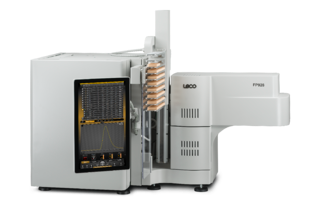The annual Thanksgiving holiday sees the majority of Americans sharing a Thanksgiving meal, with around 95% of people eating some form of turkey. Estimates from the National Turkey Federation (NTF) have suggested that up to 46 million turkeys are consumed on Thanksgiving alone.
These turkeys weigh an average of 15 pounds each, culminating in around 690 million pounds of turkey being consumed in a single day.

Image Credit: Shutterstock / ssuaphotos
LECO recently undertook a study to determine how much protein is in that turkey, using its FP928 nitrogen/protein determinator.
The FP928 works with macro samples (up to 3 g) in a horizontal combustion furnace, making the instrument ideal for analyzing protein in meat samples. Protein levels can be determined in a simple, brief, 5-minute cycle by determining nitrogen levels in a meat sample and applying an appropriate multiplier - typically 6.25.

Image Credit: LECO Corporation
The FP928 features a 100-position autoloader and a mobile software app. These features allow the instrument to be controlled via smartphone, loaded and set to run without ongoing supervision or operator intervention.
LECO used the FP928 to run samples of turkey, bacon, ham and hot dogs to determine the average protein levels of these four commonly eaten meat products.
The investigation showed that turkey contained around 17% protein - almost the same protein content as ham, but with much less fat. This confirmed that turkey is a leaner and healthier food choice for the holiday.

This information has been sourced, reviewed and adapted from materials provided by LECO Corporation.
For more information on this source, please visit LECO Corporation.